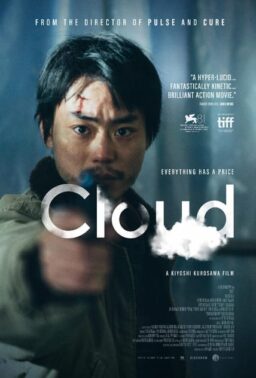TELLURIDE, Colo.–Bob Crane seems to have been an awfully nice guy. Not a faithful husband, not a great father, but a helluva nice guy to run into late at night in a bar or a strip club, especially if you were young, female, and a fan of “Hogan’s Heroes.” Chances are he would even oblige you by having sex.
“Auto Focus,” the brilliant new film by Paul Schrader, documents Crane’s rise and, mostly, his fall in a haunting showbiz biopic. Starring Greg Kinnear as Crane and Willem Dafoe as John Carpenter, Crane’s running mate in the swinging underworld, the movie follows a family man who stumbled into TV success, discovers the world of groupies, and seems to sleep with them because it seems like the polite thing to do.
“Auto Focus” is premiering here this weekend at the 29th Telluride Film Festival, which includes a tribute to Schrader, whose directing credits include “American Gigolo” and “Light Sleeper,” and whose screenplays include “Taxi Driver” and “Raging Bull.”
Schrader joins two other veteran directors whose new films have been embraced by the sophisticated Telluride audience: Spain’s Pedro Almodovar, whose “Talk to Me” has been called his best work, and Finland’s Aki Kaurismaki’s “The Man Without a Past,” which combines his deadpan humor with something deeper.
Schrader’s “Auto Focus” is set in the years before and after “Hogan’s Heroes,” a TV sitcom that depended on the charm of the Crane character, who got away with murder in a German POW camp. Happily married, a family man, a practicing Catholic, Crane meets Carpenter on the set one day, and his life makes a U-turn.
The other man is involved in the electronics industry, shows Crane the first portable video cameras and cassette recorders, and invites him to a strip club. Soon Crane is sitting in on the drums at strip clubs every night after work, and staying out even later as he and Carpenter seduce legions of women, and record most of their conquests on film. Crane seems oblivious to the danger to his career; he stars in Disney’s “Superdad” while Polaroids of his orgies circulate through Hollywood.
The brilliance of the film comes in the way it sees how essentially unsatisfying, even deadening, Crane’s life becomes–a treadmill to promiscuity. Schrader somehow succeeds in making a film with wall-to-wall sex in which sadness and loneliness, not passion, is the subject. And then there is the creepy subtext of Crane’s relationship with Carpenter, who wants to think of himself as more than the TV star’s procurer.
Kinnear is uncanny as Crane, looking a lot like him and effortlessly suggesting the autopilot charm that is all the scarier because, we suspect, it is sincere. Dafoe’s character has a murkier role, involved in what may be unexpressed homosexual jealousy between two men whose actions are always hetero. Schrader places them in a world that looks like a Playboy Bachelor Pad, circa 1964, with all the right drinks, clothes, toys–and then he shades that world into the emerging hippie and psychedelic era.
“Talk to Me,” the Almodovar film, sounds in summary like another one of the lurid soap operas he specializes in. As the film opens, a hospital intern spends even his off-hours at the bedside of a beautiful young woman in a coma. Soon the victim is joined by another–a beautiful female bullfighter, gored and comatose, who also has a tireless admirer. The two men, logging countless hours at their bedsides, become friends, and it’s intriguing how their relationships with the sleeping beauties are so fulfilling for them. Then something sensational takes place and causes upheaval in what seemed like a static situation. There is melodramatic sensationalism at the end, as always with Almodovar, but this time it’s curiously moving.
“The Man Without a Past” is another of those Kaurismaki films in which passive people glide thoughtfully through extraordinary situations. Its hero awakens with no memory, tries to re-enter society, is honest when he says he has no idea who he is, and seems to become a blank slate on which many others try to write their ideas about him. But this is not a drama about amnesia; it’s more of a wry examination of how we all unconsciously believe we “are” the people whose names we bear, when in fact our names and histories may simply be randomly accumulated and have little to do with who we really are.
These three films have Telluride off to a strong start. All weekend, movies unreel from dawn to past midnight, and then of course there’s the Labor Day ice cream social in the town park, with great directors sitting on bales of hay and discussing their work.
Not like your average festival.











